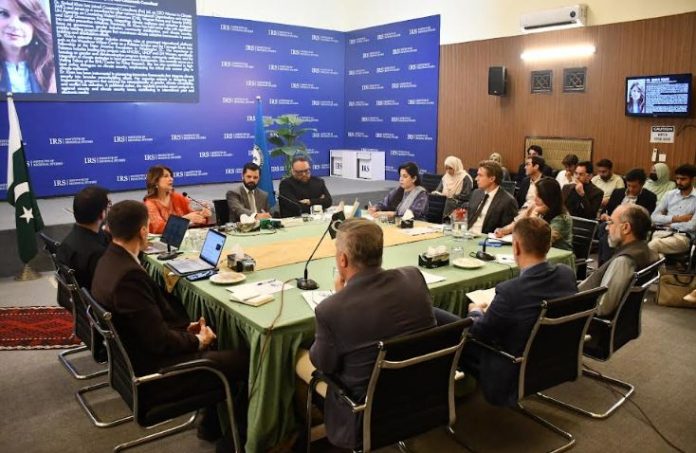ISLAMABAD, OCT 1 /DNA/ – Experts speaking at an event titled “Emerging Technologies and the Future of Counterterrorism Operations in the Pakistan-Afghanistan Border Areas” organized by the Institute of Regional Studies (IRS) emphasized the need for preventing emerging technologies from landing into the hands of the terrorists. They were of the view that even though the drone technology currently in the hands of terrorists was rudimentary, if the trends continued, it could pose serious challenges for law enforcement and security agencies in the Pak-Afghan border regions.
Mr Abdul Basit, Senior Associate Fellow at the International Centre for Political Violence and Terrorism Research (ICPVTR) of Nanyang Technological University, Singapore, was of the view that the sanctuary provided to the Tehrik-i-Taliban Pakistan (TTP) in Afghanistan as well as the ready availability of finances had already enabled it to progress from the experimentation phase in the use of emerging battlefield technologies to an iteration phase. If left unchecked, he maintained, the TTP could advance to the next two breakthrough and competition phases in the use of this technology. He underscored the payload capacity, speed, and range constraints of the improvised commercial drones used by the terrorist groups. He, however, cautioned about the implications of the advancements in the use of drone technologies for urban spaces.
Mr Iftikhar Firdous, Founder and Editor of The Khorasan Diary, stated that the Pak-Afghan counter-terrorism landscape had transformed since the takeover of Kabul by the Taliban. He added that the sophistication of weapon systems used by the TTP since 2021 had considerably increased since then, helped, in part, by the ready availability of NATO’s leftover weapons in Afghanistan. The TTP’s use of night vision goggles-equipped M4 and M16 rifles to attack Pakistan’s posts on the Pak-Afghan border had considerably increased the lethality of the TTP attacks, according to him. Firdous further shared that al-Qaeda was one of the key mentors and sponsors of the use of improvised drone technology by terrorist groups in Pakistan.
Dr Simbal Khan, Security and Stabilization Expert and the CEO Crossroads Consultants, maintained that the improvised drone technology used by the TTP could only be effectively controlled through impacting the decisions of the technology’s users. She added that if the technology was made difficult to acquire and improvise through a collective regional approach, it could keep the terrorists from further advancements in the field.
Mr Aarish U. Khan, the Head of the Afghanistan Program at IRS, highlighted regional cooperation on the subject, which led to the placement of counter-drone cooperation on the regional security agenda of the Shanghai Cooperation Organization. He further shared that the UN Office of Counter-Terrorism had launched a global program in 2024 to help member states regulate UAV use by terrorists.

















